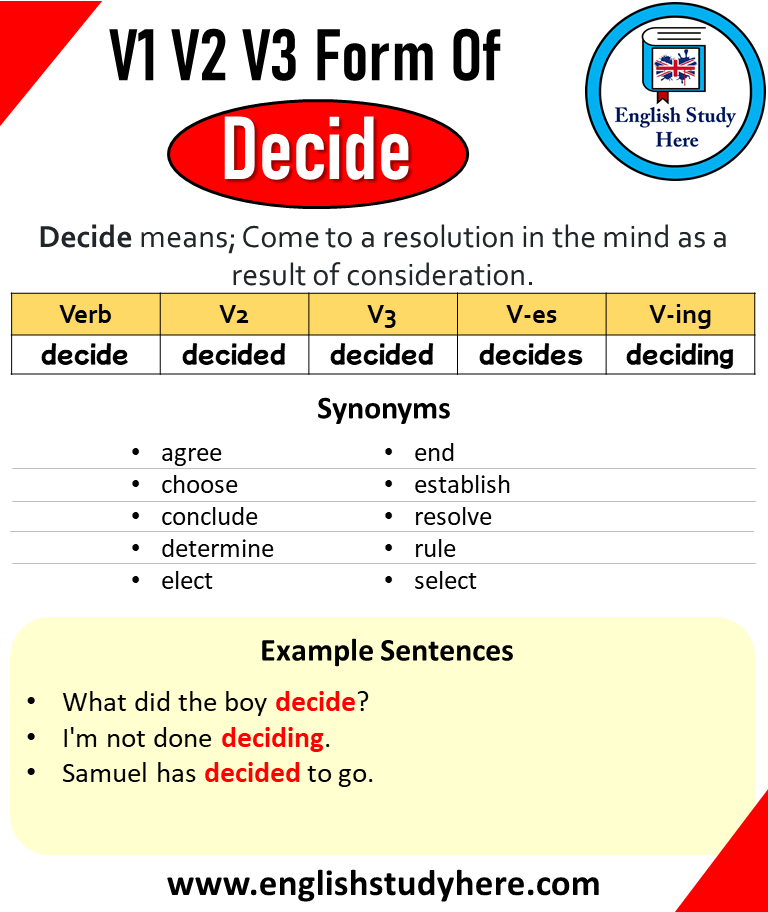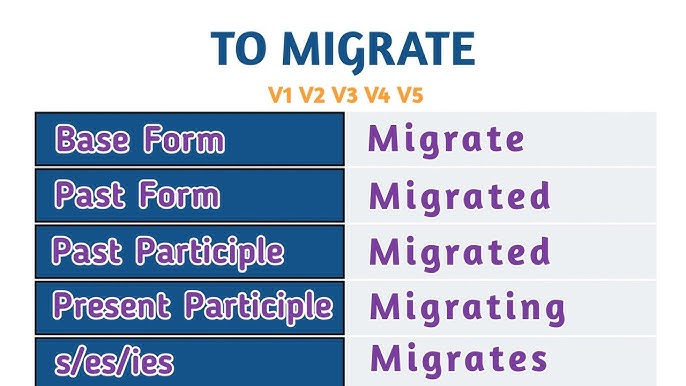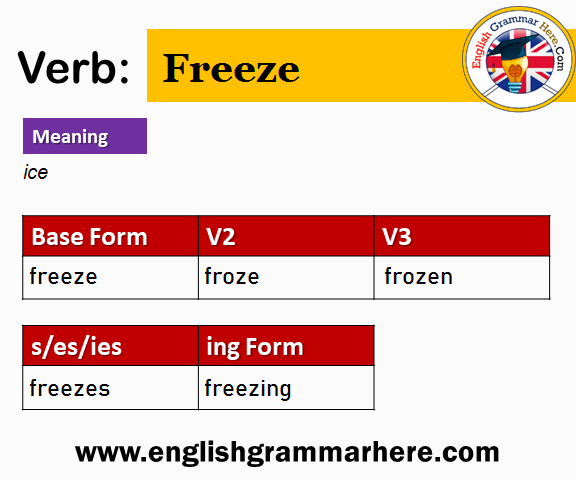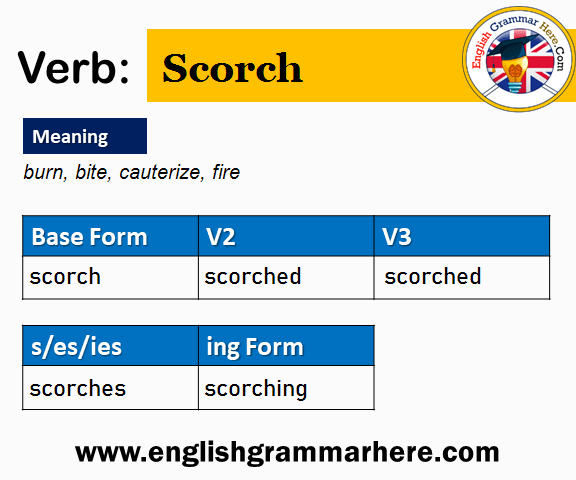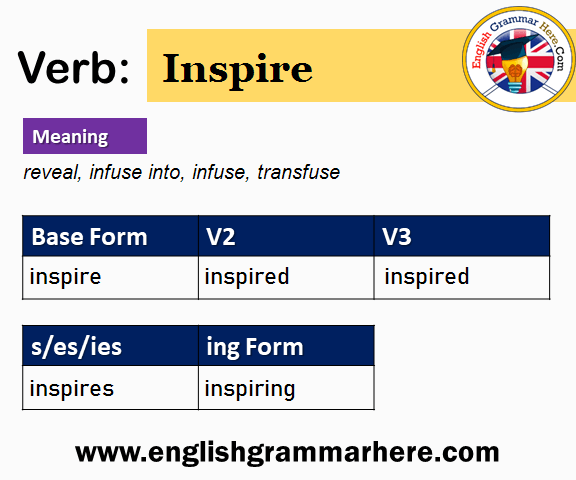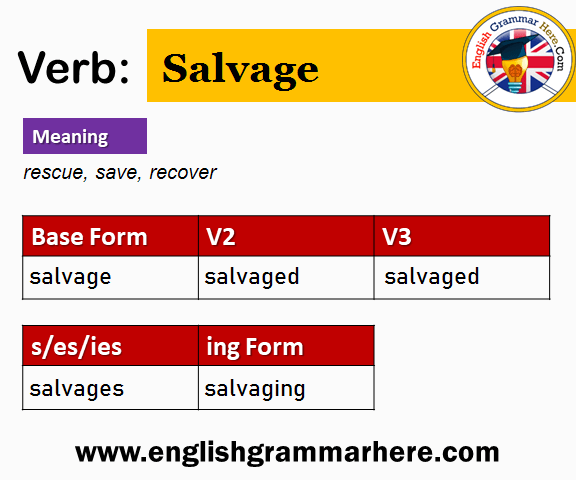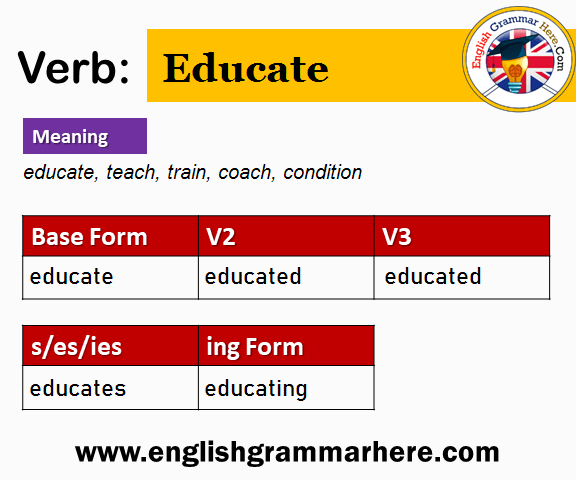Decide Past And Past Participle Form V1 V2 V3 V4 V5 Form of Decide
Have you ever been puzzled by verb forms and their correct usage? You’re not alone.
The English language, rich in its complexity, often leaves us scratching our heads. One verb that might have caught your attention is “decide. ” Understanding the past and past participle forms of this verb, along with its V1, V2, V3, V4, and V5 variations, can be essential for mastering your language skills.
Imagine being able to write and speak with confidence, knowing you’re using the right verb forms every time. This article will unravel the mystery behind the forms of “decide,” empowering you to make informed choices in your communication. Dive in, and discover how simple and straightforward English can become once you grasp these key concepts.
Decide: Verb Forms And Usage
Decideis a verb we use in daily life. It helps us make choices. The verb forms are important to know. The base form is V1: decide. The past form is V2: decided. For the past participle, use V3: decided. The present participle is V4: deciding. Lastly, the third person singular is V5: decides.
These forms help in making sentences. For example, “I decideto play.” In past tense, say “I decidedto play.” To show something ongoing, use “I am decidingnow.” For third person, say “He decidesquickly.” Understanding these forms makes language easy.

Credit: englishgrammarhere.com
Past And Past Participle Forms
The word decidehas different forms. The basic form is the present tense, which is decide. In the past tense, it becomes decided. This form tells us something happened before.
In the past participle, it is also decided. This form is used with helping verbs like ‘have’ or ‘has’. It helps show actions that are completed.
| Form | Example |
|---|---|
| V1 | decide |
| V2 | decided |
| V3 | decided |
| V4 | deciding |
| V5 | decides |
- I decideto play outside.
- She decidedto read a book.
- We have decidedto go on a trip.
Applications In Sentences
Decide is a verb. Kids use it every day. Past form is decided. Past participle is also decided. Use decide when you make a choice. He decided to play outside. She decided to read a book. Present participle is deciding. They are deciding what to eat. Third person form is decides. Mom decides the menu. Dad decides the movie. Infinitive form is to decide. It’s hard to decide sometimes.
Decide helps us in choices. Use it wisely. Words are powerful. Choose them carefully. Decide your words well. Kids understand simple words. They learn fast. Decide is one of those words. Easy to use. Fun to learn.
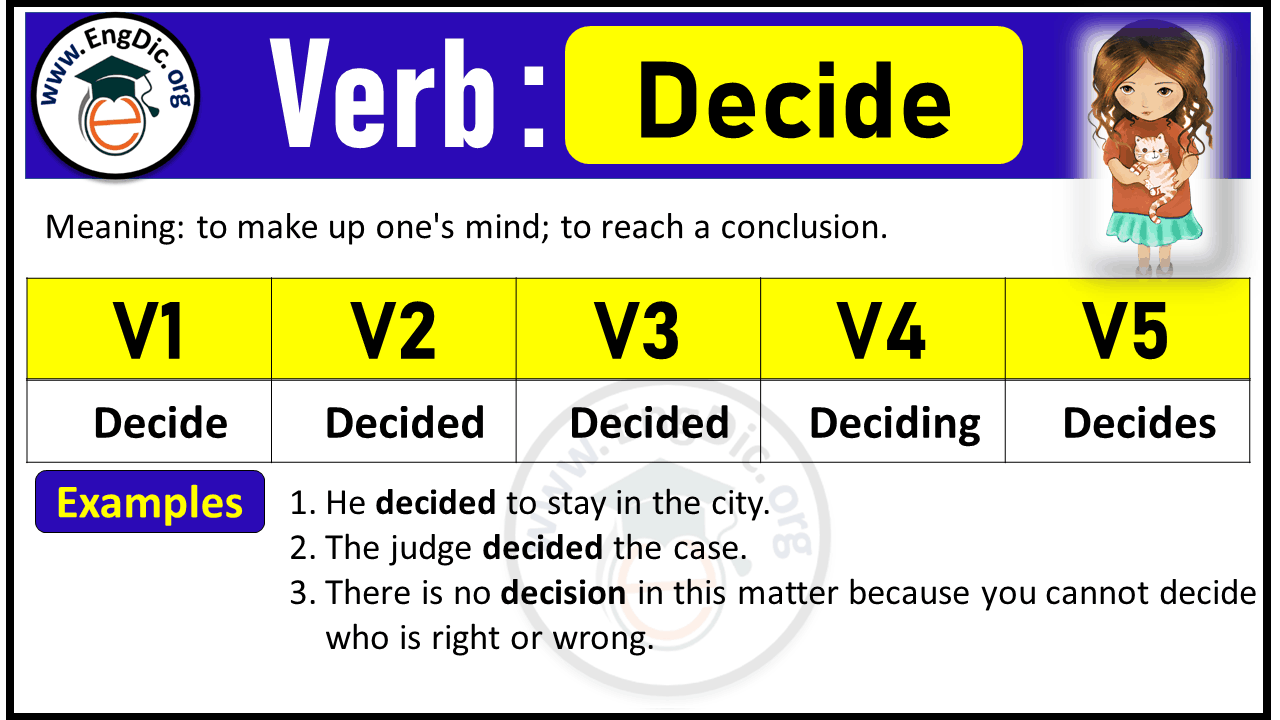
Credit: engdic.org
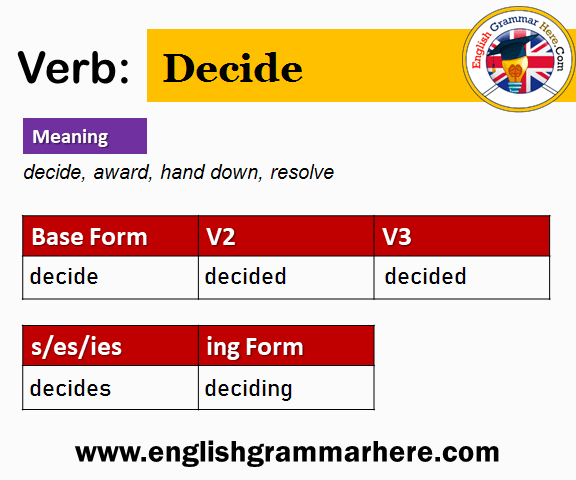
Credit: englishgrammarhere.com
Conclusion
Deciding forms matter for clear communication. Use correct forms for clarity. The past form is “decided,” a key word for past actions. For present actions, stick to “decide. ” The past participle form, “decided,” is used with “have” or “has.
” V1 to V5 forms help in sentence construction. Knowing these forms enriches language skills. Practice them in writing and speech. They enhance understanding and expression. Familiarize yourself with these forms. They aid in learning English. Regular use makes them second nature.
Keep practicing for improvement. Language mastery takes time and patience.
